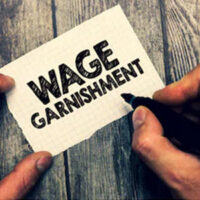When Can Garnishment Happen?

If you are struggling with debt and experiencing routine contact from debt collectors, you may be concerned that a creditor or debt collector could begin taking additional action against you with the aim of recovering some of the money you owe. There are various steps that creditors and debt collectors may be able to take, such as home foreclosure, property liens, and civil lawsuits. However, one of the steps that often concerns Georgia residents is wage garnishment. It is also known sometimes as “having your wages attached” or “having your wages garnished.” This process of wage garnishment involves an order to your employer that requires your employer to withhold a particular amount of money from every paycheck you earn and for that withheld amount to be sent to one or more creditors.
Wage garnishment can be frustrating when you are trying to get on track with your finances. At the same time, it can also be somewhat embarrassing for Georgia residents who do not want their employers to know about their financial difficulties. When can wage garnishment happen? Our Georgia debt settlement attorneys can provide you with more information.
Understanding Wage Garnishment in Georgia
In order to understand when garnishment can happen, it is essential to understand the general process for wage garnishment in Georgia. As we mentioned above, garnishment is a legal process that involves ordering your employer to withhold a portion of your pay and sending the withheld earnings to a creditor. It is possible for other types of garnishment to occur in Georgia, as well, including a bank account levy. Generally, however, garnishment refers to wage garnishment.
How Does a Wage Garnishment Order Occur?
Generally speaking, a wage garnishment in Georgia will only happen with a court order. What does that mean? In short, a creditor or debt collector will need to file a civil lawsuit against you. Then, once the creditor or debt collector gets a judgment against you, the court can order your wages to be garnished. The court will send the garnishment order to your employer.
You should know that there are legal limits on the amount of your paycheck that can be garnished, but the amounts are still relatively high. Georgia law generally allows 25 percent of a person’s weekly disposable earnings to be garnished, or 15 percent in the case of student loans.
Circumstances in Which Wage Garnishment is Common
While wage garnishment can occur in almost any type of circumstance in which a creditor obtains a judgment against a debtor, courts are more likely to order wage garnishment in certain types of cases involving unpaid debts. When are wage garnishments more likely? In general, you should expect that any unpaid family support (including child support or alimony), unpaid taxes, and unpaid federal student loans could result in wage garnishment. Yet it is important to remember: other creditors, provided they are willing to file a civil claim and take you to court, can also obtain money from you through garnishment.
Contact a Georgia Debt Settlement Lawyer
Are you facing the possibility of wage garnishment as a result of unpaid debt? Or are you concerned about wage garnishment and other serious collection actions that could be taken against you because of the debt you owe? You may have multiple options to consider. When you are dealing with credit card debt, personal loan debt, and other forms of consumer debt, there are options available. You might be able to settle those debts with help from an experienced Georgia debt settlement attorney at Konn Law Firm LLC. Contact us today to find out more about the services we provide to debtors and consumers in Georgia.
Source:
law.justia.com/codes/georgia/title-18/chapter-4/
